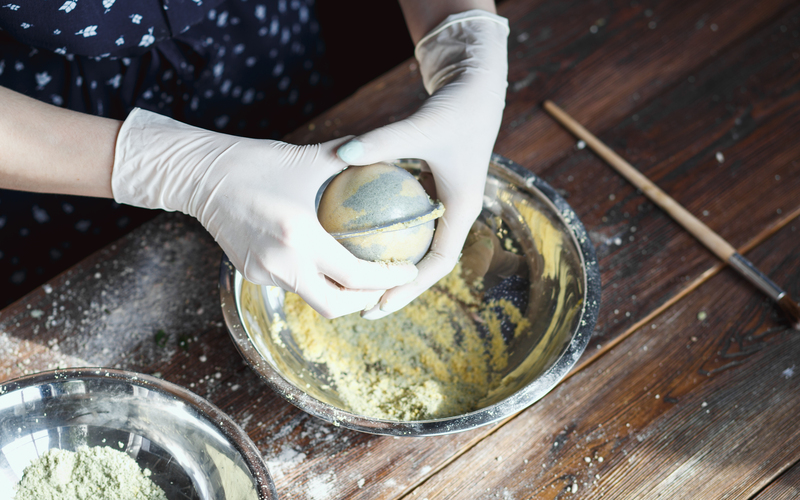Housekeeping Success: The Art of Sticking to a Cleaning Routine
Posted on 24/06/2025
Achieving and maintaining a clean, organized living space is a dream for many, but few realize that housekeeping success is less about intense cleaning marathons and more about embracing the art of sticking to a cleaning routine. Harness the power of habit, establish routines, and unlock a home that radiates comfort, hygiene, and tranquility.
Why a Cleaning Routine Matters
Beyond aesthetics, a home that follows a regular cleaning schedule offers significant physical, mental, and emotional benefits. Let's explore why investing time into a consistent housekeeping routine makes a difference:
- Reduces Stress: Clutter and mess are proven to increase stress and anxiety.
- Promotes Health: Routine cleaning minimizes dust, allergens, and germs.
- Boosts Productivity: An organized environment leads to improved focus and motivation.
- Saves Time: Routine maintenance prevents deep-cleaning headaches down the line.
- Enhances Comfort: Clean, tidy spaces create a more relaxing, inviting atmosphere.
When you make cleaning a habit, it becomes a seamless part of your daily life. The challenge, however, is sticking with it through life's many distractions.

Understanding the Art of Sticking to a Cleaning Routine
Mastery in housekeeping isn't about perfection--it's about persistence. The art of sticking to a cleaning routine lies in blending strategy with flexibility, and discipline with self-compassion. Let's break down the key elements.
1. Know Thyself: Assess Your Cleaning Personality
Everyone has unique preferences and energy levels. Identifying your cleaning style is essential for shaping a routine you'll actually follow. Ask yourself:
- Are you a morning person or a night owl?
- Do you prefer cleaning in small bursts or longer sessions?
- What areas cause you the most frustration or joy?
Customizing your housekeeping routines around your tendencies increases your chances of success.
2. Set Goals That Motivate
Clear, compelling goals are the engine of housekeeping success. Try the following:
- Visualize Your Ideal Home: Picture how you want each space to look and feel.
- Create a Reward System: Treat yourself after sticking to your routine for a week or month.
- Share Your Goals: Making goals public with family or friends increases accountability.
Keep these goals visible--on your fridge, mirror, or phone background--to serve as a daily reminder.
Building an Effective Cleaning Routine
The foundation of housekeeping success is a well-designed cleaning routine. Let's explore a step-by-step framework to create a schedule you can stick to, regardless of your lifestyle.
Step 1: Make a Master Cleaning List
List all the cleaning tasks, big and small, that need attention in your home. Don't forget:
- Daily duties (e.g., making beds, washing dishes, wiping countertops)
- Weekly chores (e.g., vacuuming, cleaning bathrooms, laundry)
- Monthly/seasonal jobs (e.g., window washing, flipping mattresses, decluttering closets)
With your master list, you'll have a comprehensive overview to draw from as you structure your cleaning schedule.
Step 2: Prioritize Tasks
Not all tasks require equal attention. Use these strategies to prioritize:
- Frequency: What demands daily vs. weekly cleaning?
- Impact: Which chores most influence the look, feel, or hygiene of your home?
- Time: Short tasks can fit into busier days; longer ones require more planning.
Focus on the high-impact, high-frequency tasks first to maximize your housekeeping efficiency.
Step 3: Create a Realistic Schedule
A successful cleaning routine should reflect your actual lifestyle. Consider:
- Family size and household dynamics
- Work schedules and commitments
- Energy peaks and valleys throughout the week
Sample Weekly Cleaning Schedule:
- Monday: Dust and vacuum common areas
- Tuesday: Clean bathrooms
- Wednesday: Wipe kitchen surfaces, mop floors
- Thursday: Change bedding, wash linens
- Friday: Declutter entryway, laundry
- Weekend: Tackle a seasonal chore or deep-clean a neglected spot
Customize this schedule based on your needs, but keep it attainable to avoid burnout.
Step 4: Automate and Delegate
Automation and delegation lighten your load and increase your chances of sticking to a cleaning routine:
- Set phone reminders or use cleaning apps for scheduled chores
- Assign age-appropriate tasks to family members
- Consider professional cleaning help for periodic deep cleans
Making cleaning a shared effort transforms it from a solo task to a household habit.
Habits & Mindsets for Long-Term Housekeeping Success
Make Cleaning Enjoyable
When cleaning feels like a joy instead of a chore, you're more likely to develop a lasting routine. Here's how:
- Play your favorite music or podcasts while you clean
- Turn tasks into a game or race against the clock
- Use pleasant-smelling cleaning products you love
- Decorate your cleaning tools for extra motivation
Inject fun and satisfaction into the process to create positive associations with your routine.
Practice the "Two-Minute Rule"
*If a task takes less than two minutes, do it immediately!* This simple rule prevents tasks from piling up and keeps your home consistently clean.
Examples include:
- Wiping countertops after preparing meals
- Putting laundry in the hamper
- Returning shoes or coats to their place
Combat Procrastination with Triggers
Link cleaning tasks to already established habits. For example:
- Vacuum while dinner is in the oven
- Wipe down the bathroom after your morning shower
- Dust during a commercial break on TV
*Pairing tasks with "triggers" trains your brain to clean automatically--with less willpower required.*
Track and Celebrate Progress
Use a physical checklist, journal, or digital app to mark off completed chores.
- Visibly tracking progress boosts motivation and provides instant gratification.
- Don't forget to celebrate milestones--a whole month of housekeeping success deserves a reward!
Overcoming Common Cleaning Routine Challenges
Sticking to a cleaning regimen can meet resistance, especially when life gets busy. Here are practical solutions for the most common stumbling blocks:
Lack of Time
- Break chores into bite-sized tasks that can be completed in short pockets of time.
- Batch tasks together (e.g., dust all surfaces in one go instead of individual rooms).
- Use a "power clean" approach: 10-15 minutes of focused effort daily makes a big impact.
Low Motivation
- Remind yourself of your goals and the benefits of a clean home (better health, less stress, more pride).
- Involve a cleaning buddy--even a virtual one--for extra accountability.
- Update your routine to keep things fresh and interesting.
Overwhelm & Perfectionism
- Focus on "progress, not perfection."
- Start with a single room or task. Small wins build momentum.
- Let go of the idea that everything must be spotless all the time.
Cleaning Routine Tips for Every Room
Each room has specific needs--but daily attention to key areas ensures all-around cleanliness.
- Kitchen: Wipe counters and sinks daily, empty trash, clean appliances weekly, and deep-clean refrigerator monthly.
- Bathroom: Squeegee shower doors after use, wipe mirrors, sanitize toilet and sink several times per week.
- Living Room: Declutter surfaces daily, vacuum weekly, and wash throws/cushions regularly.
- Bedrooms: Make beds each morning, put away clothes, freshen linens weekly.
- Entrances: Sweep floors, organize shoes, and wipe down high-touch surfaces weekly.
Leveraging Technology for Housekeeping Success
Embrace smart solutions that simplify maintaining your cleaning routine:
- Cleaning apps: Try apps like Tody, OurHome, or HomeRoutines to schedule and track chores.
- Smart devices: Robotic vacuum cleaners, steam mops, and other gadgets streamline regular cleaning.
- Voice reminders: Use virtual assistants (Google Home, Alexa) to prompt you with cleaning reminders.

Family Involvement: Building a Household Cleaning Culture
Housekeeping is a shared responsibility, and involving everyone--kids included--teaches life skills, instills discipline, and strengthens family bonds.
- Assign age-appropriate chores: Even toddlers can put away toys; teens can help with laundry or trash.
- Make it fun: Turn on music, set timers, and offer rewards for team participation.
- Lead by example: Consistency from adults inspires kids to follow suit.
Conclusion: Your Pathway to Housekeeping Success
The art of sticking to a cleaning routine is transformative--not just for your home, but for your wellbeing. Whether you live alone or with a bustling family, integrating small, regular cleaning habits into your daily life reduces stress and builds a sanctuary you'll love returning to.
Start small, customize your approach, and remember: Consistency is the secret ingredient to lasting housekeeping success. Embrace the journey, and your sparkling, peaceful home will always be within reach!
Ready To Start Your Cleaning Routine Journey?
- Assess your habits and schedule--what will work best for you?
- Draft your customized cleaning plan.
- Enlist help and use technology for an extra boost.
- Remember to track, celebrate, and adjust as needed.
With these practical strategies and mindset shifts, you'll soon become a master of the art of sticking to a cleaning routine--and unlock a happier, healthier home!
Let the journey to your best-ever housekeeping success start today!




